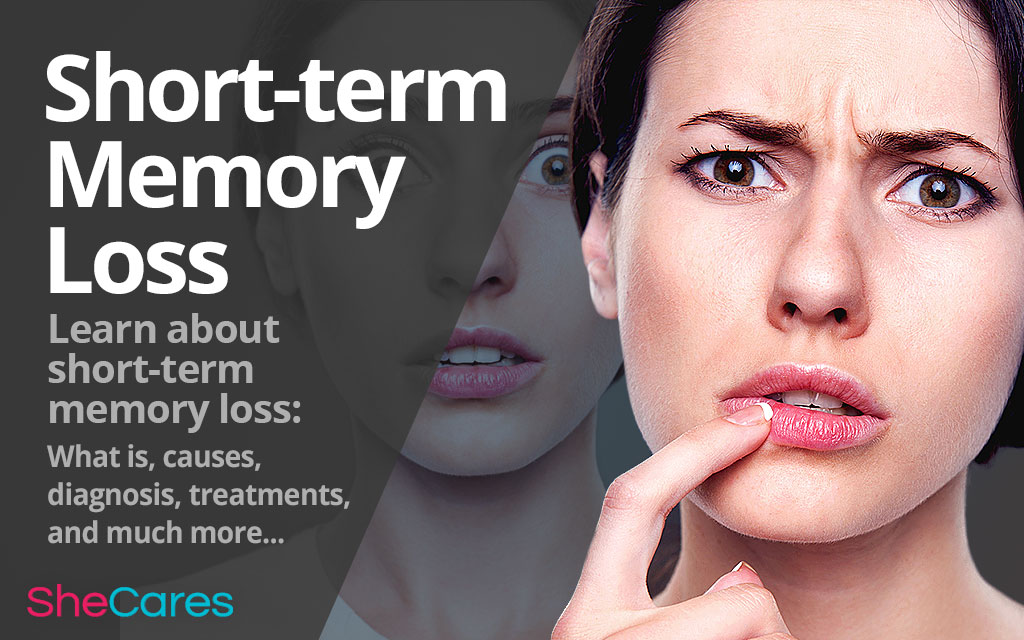Memory Short Term Loss: Diagnosis, Treatment, and Management
There are many causes of short-term memory loss, including: stress, anxiety, depression, sleep deprivation, medications, and alcohol. Short-term memory loss can also be a symptom of more serious underlying medical conditions such as Alzheimer’s disease or dementia. If you are experiencing short-term memory loss, it is important to see your doctor to rule out any potential underlying causes.
There are some things that you can do to help improve your short-term memory, including: getting plenty of rest, eating a healthy diet, and exercising regularly.
There are many causes for short-term memory loss, and it can be a frustrating experience. However, there are some things that you can do to help improve your memory. First, try to get plenty of sleep each night and exercise regularly.
These two activities will help keep your mind sharp and focused. Additionally, eat a healthy diet and avoid smoking or drinking alcohol. If you are taking any medications, talk to your doctor to see if they could be affecting your memory.
Finally, try some memory-enhancing exercises or games such as crosswords or Sudoku. With a little effort, you can improve your short-term memory loss and keep your mind sharp!
Short Term Memory Loss – What It Is, What Causes It, and How To Prevent It
What are the First Signs of Short-Term Memory Loss?
There are a few early warning signs that suggest someone may be experiencing short-term memory loss. These include forgetting recently learned information, difficulty with multitasking or keeping track of time, and trouble finding the right words when speaking. Additionally, people with short-term memory loss may have increased difficulty completing familiar tasks and may start to feel more anxious or depressed.
If you or someone you know is exhibiting these symptoms, it’s important to see a doctor for an evaluation as soon as possible.
How Do You Fix Short-Term Memory Loss?
There is no one-size-fits-all answer to this question, as the best way to fix short-term memory loss will vary depending on the underlying cause. However, some general tips that may help include: getting plenty of rest and exercise, eating a healthy diet, and avoiding stress. If you are struggling to remember things that have happened recently, it may also be helpful to try some memory techniques such as mnemonic devices or keeping a journal.
If your memory loss is severe or impacting your daily life, it is important to talk to a doctor or other healthcare professional for further guidance.
What Illness Causes Short-Term Memory Loss?
There are many illnesses that can cause short-term memory loss, including: Alzheimer’s disease, Parkinson’s disease, Huntington’s disease, stroke, and head trauma. However, the most common cause of short-term memory loss is simply aging. As we age, our brains become less efficient at storing new information.
This is why it becomes more difficult to learn new things as we get older.
Can You Have Short-Term Memory Loss Without Dementia?
There is no definitive answer to this question as it depends on the individual and the severity of their memory loss. However, it is generally accepted that short-term memory loss is a symptom of dementia, and therefore it is unlikely that someone would experience short-term memory loss without also experiencing some other form of cognitive impairment.

Credit: www.shecares.com
Short-Term Memory Loss Treatment
There is no known cure for short-term memory loss, but there are treatments that can help. Some treatments include: medications, psychotherapy, and support groups.
Short-Term Memory Loss Symptoms
There are several short-term memory loss symptoms that can indicate a problem. These include forgetfulness, difficulty concentrating, and feeling overwhelmed or stressed. If you experience any of these symptom regularly, it’s important to see your doctor to rule out any underlying medical conditions.
Short-Term Memory Loss in Young Adults
There is no denying that memory loss is a scary thing. We all rely on our memories to get us through life, so when they start to fail us, it can be really disorienting. Unfortunately, memory loss is a common issue for many people, especially as we get older.
But did you know that young adults can also experience memory loss?
While it’s not as common as it is in older adults, short-term memory loss can still happen to young people. This type of memory loss usually occurs after some sort of trauma or injury, but it can also be brought on by stress or anxiety.
If you’re struggling with short-term memory loss, there are some things you can do to help improve your situation. First, try to relax and reduce the amount of stress in your life. Secondly, make sure you’re getting enough sleep each night.
And finally, eat a healthy diet and exercise regularly; both of these things will help keep your brain sharp and focused.
Conclusion
The blog post discusses the idea that memory loss is a normal part of aging, and there are ways to help improve your memory. There are many things you can do to help keep your memory sharp, including staying active and mentally challenged, eating a healthy diet, and getting enough sleep. If you’re concerned about memory loss, talk to your doctor.




